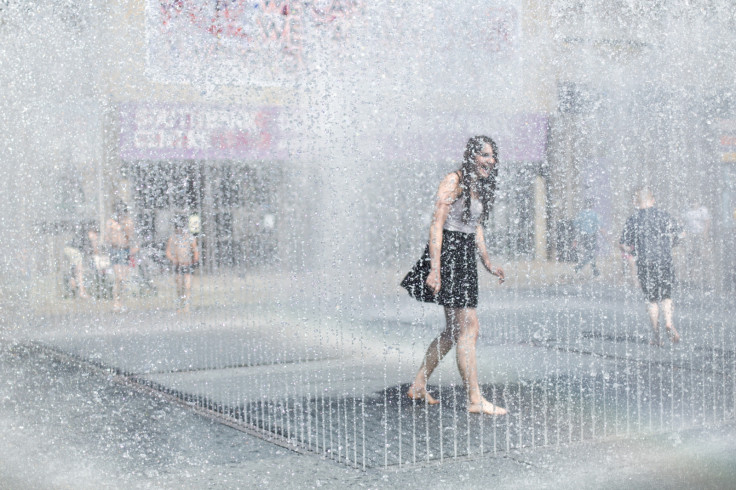UK heatwave: Five easy ways to stay cool and healthy during the hottest day of year

Temperatures are set to hit 35°C in parts of the UK on Wednesday 1 July as Britain experiences its hottest day of the year, thanks to a tropical continental front from Europe. As Britons swelter in what could well be the hottest day since 2006, Public Health England has warned to drink plenty of water and stay indoors.
But for those commuting to work or stuck in an office during the heatwave, here are some tips to stay cool and beat the heat.
Drink plenty of water
It seems obvious but it is safe to say Brits are simply not used to hot weather – and so we are unlikely to change our habits of not drinking enough fluids as the mercury rises. Dehydration is a major risk in a heatwave, so make sure you have a bottle of water with you at all times, particularly if travelling on public transport. A cold beer is tempting but it won't hydrate you.
Avoid the heat
Stay out of the sun between 11am and 3pm – the hottest part of the day – if you are vulnerable to heat. If you are going outside, make sure you stay in the shade and wear plenty of high-factor sun cream.
Keep rooms cool
Use shades or reflective material outside the windows to prevent your home heating up like a greenhouse. Beware, however – metallic blinds and dark curtains can make a room hotter, so stick to light-coloured curtains. Turning off electrical items can help keep the temperature down.
Loose clothing
Tight clothing will increase your body temperature and can be extremely uncomfortable in humid heat. Wear loose, cool clothing – cotton and linen are ideal materials – and wear a hat if you go outside.
Take a day off from sports
Don't overdo it with strenuous exercise – use the hot weather as an excuse for a day off.
Temperature has risen again with 30.4 °C recorded at Kew Gardens. We could see 35 °C tomorrow #HeatWave https://t.co/D8XLRlJRXP
— Met Office (@metoffice) June 30, 2015What are the risks posed by a heatwave?
Dehydration – not having enough water
Overheating
Heat exhaustion
Heatstroke
Healthy people in general cope with hot weather, but the sick or elderly are vulnerable to high temperatures. Public Health England advises to check up on those who may be susceptible to heat-related problems.
Dr Paul Cosford, Director for Health Protection at PHE, said: "While many people enjoy hot weather, high temperatures can be dangerous, especially for people who may be particularly vulnerable such as older people, young children and those with serious illnesses."
What are the symptoms of heatstroke or dehydration?
The signs of heatstroke or heat exhaustion include: hot skin that feels flushed, dizziness, extreme fatigue, nausea, vomiting, a rapid heartbeat, confusion and much darker urine than normal.
Symptoms of dehydration including increased thirst, dry mouth, dizziness, palpitations, confusion, fainting, sluggishness and a swollen tongue.
© Copyright IBTimes 2025. All rights reserved.






















